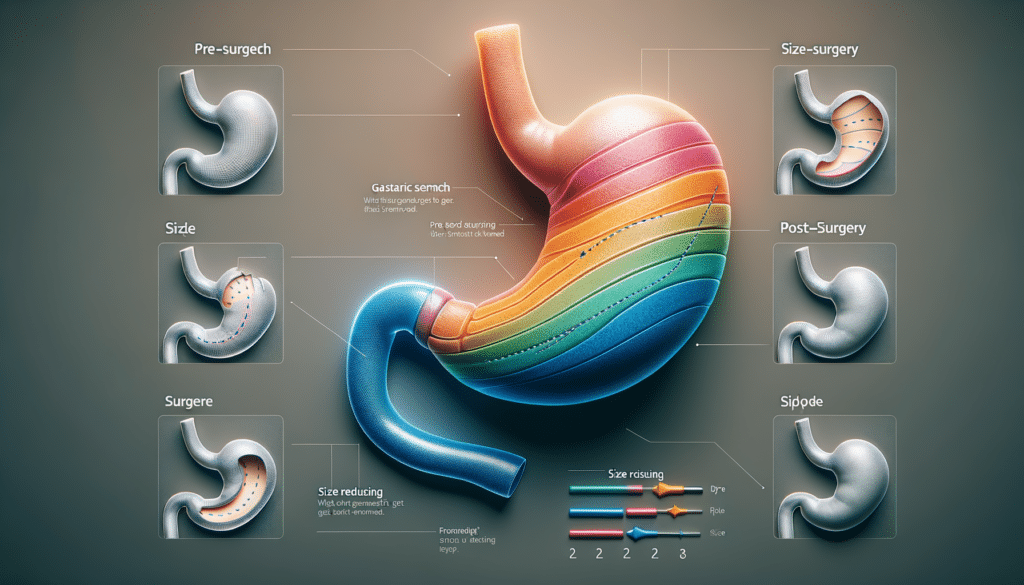Understanding Gastric Sleeve Surgery
Gastric sleeve surgery, also known as sleeve gastrectomy, is a type of bariatric surgery that involves the removal of a large portion of the stomach. This results in a sleeve or tube-like structure, which significantly reduces the stomach’s capacity. The primary aim of this procedure is to help individuals lose weight by limiting food intake and reducing hunger sensations.
The surgery is typically recommended for individuals with a body mass index (BMI) of 40 or higher, or those with a BMI of 35 or higher who also suffer from obesity-related health conditions such as type 2 diabetes, hypertension, or sleep apnea. Gastric sleeve surgery is often seen as a viable option for those who have struggled with traditional weight loss methods, such as diet and exercise, without achieving significant results.
Key advantages of gastric sleeve surgery include:
- Significant weight loss, with patients losing up to 60% of their excess weight within the first year.
- Improvement or resolution of obesity-related health conditions.
- Minimal nutritional deficiencies compared to other bariatric procedures.
The Procedure: What to Expect
Gastric sleeve surgery is performed laparoscopically, which involves making small incisions in the abdomen through which surgical instruments and a camera are inserted. The surgeon then removes approximately 75-80% of the stomach, leaving a narrow tube or sleeve. The procedure typically takes about one to two hours to complete.
Patients are usually required to stay in the hospital for one to two days post-surgery. During this time, healthcare providers monitor recovery and provide guidance on diet and activity levels. Recovery time varies, but most individuals can return to normal activities within four to six weeks.
Pre-surgery preparation includes a series of evaluations, such as nutritional counseling, psychological assessment, and medical tests to ensure the patient is fit for surgery. Post-operative care involves a gradual reintroduction of foods, starting with liquids and progressing to solid foods over several weeks.
Comparing Gastric Sleeve with Other Bariatric Surgeries
While gastric sleeve surgery is a popular choice, it is essential to understand how it compares to other bariatric procedures, such as gastric bypass and adjustable gastric banding.
Gastric bypass surgery involves creating a small pouch at the top of the stomach and connecting it directly to the small intestine. This not only reduces stomach size but also alters the digestive process, leading to more significant weight loss. However, it comes with a higher risk of nutritional deficiencies.
Adjustable gastric banding involves placing a band around the upper part of the stomach to create a small pouch. This procedure is less invasive and reversible, but it generally results in less weight loss compared to gastric sleeve surgery.
In comparison, gastric sleeve surgery offers a balance between effectiveness and safety, with fewer complications and nutritional concerns than gastric bypass, and more substantial weight loss than gastric banding.
Potential Risks and Considerations
As with any surgical procedure, gastric sleeve surgery carries potential risks. These include bleeding, infection, and adverse reactions to anesthesia. Long-term complications may include gastrointestinal issues, such as acid reflux or nutrient deficiencies.
It is crucial for individuals considering this surgery to have a comprehensive understanding of both the benefits and risks. Engaging with healthcare providers to discuss personal health conditions, lifestyle, and weight loss goals is essential in making an informed decision.
Psychological readiness is another important factor, as the surgery requires significant lifestyle changes and a commitment to maintaining a healthy diet and regular exercise post-surgery.
Life After Gastric Sleeve Surgery
Gastric sleeve surgery is not just about losing weight; it is a tool for achieving a healthier lifestyle. Post-surgery, patients often experience improvements in mobility, self-esteem, and overall quality of life.
Adhering to a balanced diet and regular physical activity is vital for maintaining weight loss and reaping the full benefits of the surgery. Patients are encouraged to join support groups or counseling sessions to help navigate the emotional and psychological aspects of their weight loss journey.
Regular follow-up appointments with healthcare providers are essential to monitor progress, address any complications, and ensure nutritional needs are met. With proper care and commitment, gastric sleeve surgery can be a life-changing procedure for those struggling with obesity.





